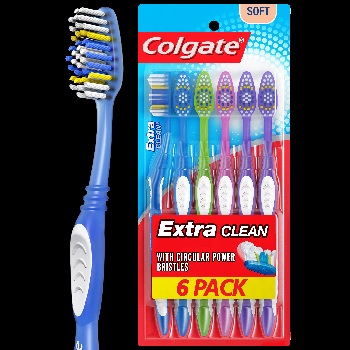Brushing your teeth is the foundation of good oral care. Both electric and manual toothbrushes are effective at removing oral plaque that causes decay and disease. Toothbrushes that are recommended are usually soft-bristled and round-tipped as they are the easiest and safest to use, but should they be manual or electric brushes?
In this post we are going to be looking at the pros and cons of both options.
In an 11 research study conducted by the University of Greifswald, Germany, researchers found that the users of electric toothbrushes experience 22% less gum deterioration and 18% less tooth decay than that of someone who uses a manual toothbrush. https://onlinelibrary.wiley.com/doi/full/10.1111/jcpe.13126

ELECTRIC TOOTHBRUSH
PROS
• Powered rotation that helps loosen plaque
• Helpful for people with conditions that limit dexterity as the toothbrush does most of the work
• Small heads are better at reaching difficult areas at the back of the teeth
CONS
• Head needs to be replaced every 3 months
• Initial cost of the electric toothbrush is higher than the manual
• Not as energy efficient as they rely on electricity to charge

MANUAL TOOTHBRUSH
PROS
• More variation of toothbrush heads
• Tool to clean tongue
• Self regulated pressure (helps if you have sensitive teeth or gums)
• Cheaper and easily replaceable
• Smaller and more portable
• More eco friendly options are available such as bamboo
CONS
• More effort is needed to use the brush
• Brush should be replaced every 3 months
• Easy to brush too hard
• Smaller handles mean that the brush is more difficult to use by those with arthritis or similar issues
In summary the correct brushing technique means that both options are suitable for removing plaque, however electric toothbrushes with rotating heads are best at cleaning and protecting teeth from gum disease.
